 We’re delighted to welcome back Poppy Alexander, a founding partner at the law firm Whistleblower Partners, a law firm dedicated to representing whistleblowers reporting fraud and misconduct in:
Poppy represents whistleblowers and government entities in qui tam lawsuits, as well as under the various agency whistleblower programs including those administered by the Internal Revenue Service, Securities and Exchange Commission, FinCEN, Commodity Futures Trading Commission, and Department of Transportation. Poppy’s practice focuses on issues of international corruption and financial misconduct, with a specialty in the Foreign Corrupt Practices Act and money laundering cases. She writes and speaks regularly about emerging topics in financial fraud, including sanctions violations, SPACs, and cryptocurrency. We last spoke with Poppy back in July of 2022 when she had already established an impressive track record representing whistleblowers at Constantine Cannon. She graduated from Harvard Law School in 2012. She was the co-editor-in-chief of the Harvard Civil Rights-Civil Liberties Law Review and an active participant in the Human Rights Clinic, working on issues related to corporate accountability for human rights violations in Africa and military abuses in Southeast Asia. She was awarded the Dean’s Award for Community Leadership in recognition for her contributions to the school community. Poppy has been named to the Super Lawyers Rising Stars list every year since 2016. Prior to law school, Poppy worked on election reform issues before beginning graduate work at the University of California, Berkeley, where she studied political and critical theory. We’ve invited Poppy to talk about her new work, and her new firm, Whisteblower Partners. Topics Discussed Include:
Further Reading / Topics Discussed in this Episode:
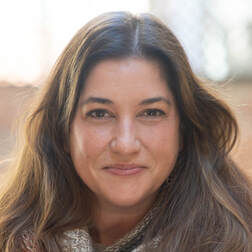
We’re pleased to have as our guest Melissa Valliant, Director of Communications for Beyond Plastics, a non-profit organization dedicated to ending plastic polution. She grew up on the Eastern Shore of Maryland and graduated from Syracuse University with a plan to pursue magazine journalism. Somewhere along the way, she became hooked on environmental conservation and discovered a love for leveraging her communications abilities to make the world a better place. Melissa had her first letter to the editor published in a kids' science magazine at the age of 11 and has since been published in the New York Times, Washington Post, Wall Street Journal, and USA Today, among others. Prior to her role at Beyond Plastics, she managed communications for Oceana's plastics campaign and worked for the National Aquarium in Baltimore.
Topics Discussed Include:
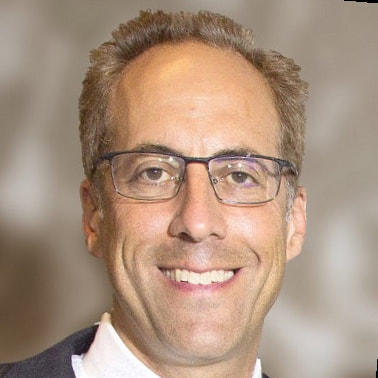
Doug founded Earth Track to more effectively integrate information on energy subsidies. For the past three decades, he has written extensively on natural resource subsidies for organizations such as the International Institute for Sustainable Development, the Organization for Economic Cooperation and Development, United Nations Environment Programme (UNEP), Sierra Club, the Natural Resources Defense Council, and the Stockholm Environment Institute. He has analyzed scores of government programs and made important developments in subsidy valuation techniques. He has provided input on subsidy reform legislation, served as a peer reviewer on subsidy papers from all over the world, and has published his own work in major journals and as book chapters. In recent years, his work has focused on subsidies to fossil fuels, nuclear power, and the impact of multi-sector natural resource subsidies on biodiversity and critical habitats.
Working collaboratively with other organizations, Earth Track focuses on ways to more effectively align the incentives of key stakeholder groups and to leverage market forces to help address complex environmental challenges. He holds an MBA from the Harvard Business School and a BA in economics from Wesleyan University. Topics Discussed Include:
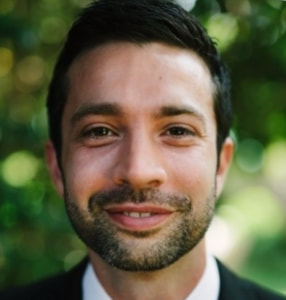
Matt Renner serves as Vice President of Seneca Environmental, a tribally owned and controlled Earth-healing solutions company focused on helping commercial customers achieve ambitious climate goals while supporting the long-term well-being of the Seneca Nation and other Indigenous people. His work focuses on partnership development and customer acquisition to create unprecedented collaboration and profitably accelerate climate action.
Matt has worked as a nonprofit executive in clean energy, climate policy, and journalism for over a decade, focusing on the near-term social and economic impacts of climate change. He was the head of Climate Mobilization and now serves on their board of directors. He began his career as an investigative reporter and later became the Executive Director of the World Business Academy to focus on the transition to a climate-constrained economic paradigm. Matt has a BA degree in Political Science and Government from the University of California, Berkeley. Topics Discussed Include:
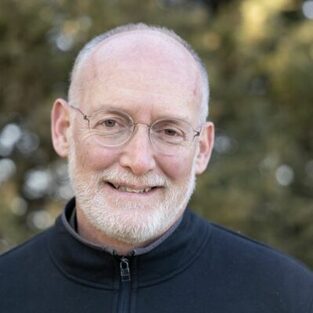
Our guest tonight is Paul Blackburn of Pipeline Fighters’ Hub. Paul provides legal services on pipeline and renewable energy matters. He has worked on crude oil pipeline issues since 2008, and has experience in renewable energy policy and development. Paul represented nonprofit clients in the South Dakota Public Utilities Commission hearing on the Keystone XL Pipeline, and in the Minnesota Public Utilities Commission hearing on expansion of Line 67, another Enbridge pipeline. He has provided policy analysis and strategic advice on a variety of pipeline matters and authored reports on pipeline safety and oil spill response.
Paul started his legal career in Washington, DC, at the law firm of Van Ness Feldman, where he assisted clients in renewable energy and coal-fired power plant development, a variety of regulatory, legislative, and litigation matters, and Native American commercial law. After leaving private practice, he began a career in the nonprofit sector, including employment by the Sierra Club, the National Environmental Trust, and Oceana in organizing and media. He also has experience in community wind and solar energy development. Paul holds a B.A. in Biology from Macalester College and a J.D. from Boston College Law School. In this episode we discuss topics including:
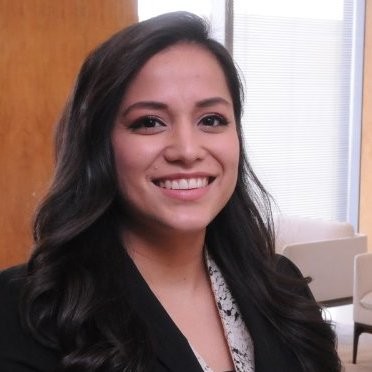
Our guest this episode is Erandi Trevino of Public Citizen, Houston. Erandi grew up in Houston and has been concerned about the pollution in her neighborhood since she was a young child.
Before joining Public Citizen in Houston as a Climate Policy and Outreach Specialist, she was an Advocacy Fellow with the Fulbright Association in Washington, DC, where she worked on education policy, nutrition, and financial regulations. During her time in DC, Erandi also volunteered for the Congressional Hispanic Caucus Institute. Earlier in her career, Erandi assisted the Permanent Representative of Mexico to the United Nations in New York. She has a law degree from Fordham University and degrees in International Relations and Latin American studies from Seton Hall University. Following her graduation there, she received a Fulbright Grant to teach English in Belo Horizonte, Brazil where she became fluent in Portuguese. In this episode we discuss the following topics:
Center for Houston's Future Houston Healthy Port Communities Coalition Environmental Defense Fund - Better Hubs - Expring Decarbonizing Industry Greater Houston Port Bureau's Project 11 On Breath Partnership's "What is Port Houston's Project 11?" Erandi's Contact Information Support the show 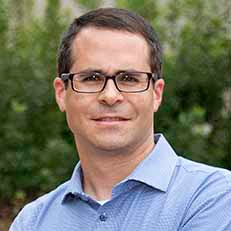
Our guest, Dr. David Konisky is a Lynton K. Caldwell Professor with the Paul H. O’Neill School of Public and Environmental Affairs at Indiana University, whose research focuses on U.S. environmental policy and politics, with particular emphasis on environmental and energy justice, regulation, federalism, and public opinion.
David came to our attention through a PBS interview in which he described Indiana industries reducing their greenhouse gas emissions by an impressive 27% over the last decade, largely without a state organized campaign or incentives. He has authored or edited six books on environmental politics and policy, including Fifty Years at the U.S. Environmental Protection Agency: Progress, Retrenchment and Opportunities (Rowman & Littlefield, 2020, with Jim Barnes and John D. Graham), Failed Promises: Evaluating the Federal Government's Response to Environmental Justice (MIT Press, 2015), and Cheap and Clean: How Americans Think about Energy in the Age of Global Warming (MIT Press, 2014, with Steve Ansolabehere). He has been the co-editor of the journal Environmental Politics since the beginning of 2021. Konisky’s research has been funded by the National Science Foundation, the Alfred P. Sloan Foundation, the U.S. Department of Energy, and the Russell Sage Foundation. Konisky earned his Ph.D. in political science from MIT. He also holds two master’s degrees from Yale University: one in environmental management and one in international relations. At the undergraduate level, he studied history and environmental studies at Washington University in St. Louis. Topics we discuss include:
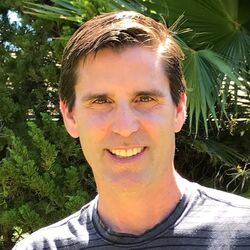
We’re excited to welcome back Mark Z. Jacobson, who joined us last year to talk about a study he co-authored called “Low-Cost Solutions to Global Warming, Air Pollution, and Energy Insecurity for 145 Countries”. He is a professor of Civil and Environmental Engineering and Director of the Atmosphere/Energy program at Stanford University, as well as a Senior Fellow at the Woods Institute for the Environment and Precourt Institute for energy, and also the Co-Founder of The Solutions Project, 100.org and the 100% Clean, Renewable Energy movement.
We've asked Mark back to see what progress the country has made with his prediction that the US and the world can change to clean energy and meet CO2 goals by only using WWS (wind, water and solar) i.e. clean non burning energy without using coal, gas, nuclear, and carbon capture. Mark released a book in February of this year, entitled No Miracles Needed: How Today’s Technology Can Save Our Climate and Clean Our Air. His book brings up more questions about the government and the some climate experts are promoting, such as carbon capture, instead of considering the potential of just using WWS. Topics covered include:
Introducing the Climate Money Watchdog and Climate & Capital Media Partnership - Peter McKillop5/17/2023
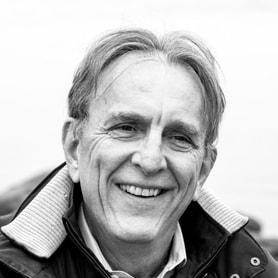
In this episode we welcome Peter McKillop, the founder and CEO of our new partner, Climate & Capital Media.
Peter is the founder of Climate & Capital Media. Climate & Capital Media is a mission-driven information platform exploring the business and finance of climate change. Climate & Capital delivers original reporting, intelligence and insight from our global network of journalists, researchers, and investors with a focus on climate-related businesses, technology, and public policy, particularly for the emerging generation of economic leaders who will shape tomorrow’s global agenda. Prior to Climate & Capital, Peter McKillop was a Managing Director at BlackRock, where he was responsible for leading the firm’s strategic communications and messaging for its iShares ETF and Indexing business. He has also held senior communication leadership positions at J.P. Morgan, KKR, UBS, and Bank of America. Before entering the financial communications field, Peter was a senior correspondent and bureau chief for Newsweek in New York, Tokyo, and Hong Kong. Our discussion ranges across the following topics, among others:
Climate Money Watchdog is working with climate business journalism organization Climate & Capital Media to broaden our reach. We recently re-published our popular episode Every Dollar Spent on CCS is a Waste with Dr. Charles Harvey and Dr. Kurt House, which is currently available on their main page and via direct link.
Climate & Capital Media is the first non-profit news organization solely focused on the business of climate change — the intersection of investment and sustainability.
Look forward to more collaboration between our two organizations, including an upcoming episode in which we speak with Climate & Capital founder and publisher Peter McKillop. Of course Every Dollar Spent on CCS is a Waste remains available on our web site and all our podcast distribution platforms. |
AuthorsDina Rasor Archives
June 2024
Categories |
© 2021 Climate Money Watchdog Inc., a Project of the Media Alliance, a tax-exempt 501(c)(3) Charitable Organization
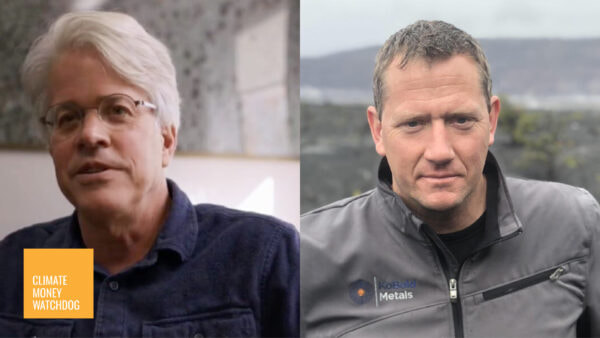
 RSS Feed
RSS Feed